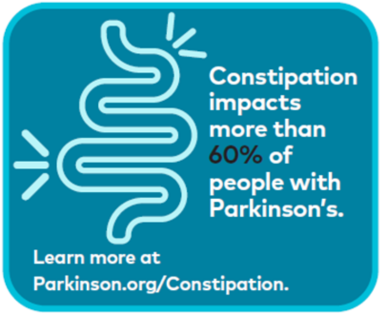Top Parkinson’s Science News Articles of 2023

To solve a puzzle, you need all the pieces. Right now, Parkinson’s disease (PD) researchers are working to identify all the pieces in the brain and how they fit together to form Parkinson’s. Every year, scientists get closer to gathering all the pieces, understanding how this disease works in order to solve it.
Our Science News blog series focuses on the latest Parkinson’s studies and how they can impact you or your loved one living with this disease. 2023 was a busy year for PD research. Explore the top Science News articles of 2023:
1. Artificial Intelligence Study Detects Parkinson’s from Breathing Patterns
Parkinson’s is not always easy to diagnose or monitor. Unfortunately, there is no single test — besides a doctor assessing symptoms — to diagnose Parkinson’s or predict the course of the disease.
Prior studies have shown a connection between Parkinson’s and breathing patterns. Using this data, researchers created a new AI system that uses breathing patterns while a person is sleeping to help diagnose and monitor disease progression — with 90% accuracy.
2. Blood Test Can Help Track PD Symptoms and Progression
Diagnosing and treating Parkinson’s early on can lead to better disease management and a higher quality of life. This study found evidence of molecular changes in the blood that mirror changes in the brain of people with Parkinson’s who experience cognitive and movement symptoms.
Understanding and identifying these molecular changes is essential for developing new minimally invasive tests that would not only diagnose Parkinson’s but help track its progression and how it responds to treatment. To connect these dots, this study looked at RNA (a molecule essential for various biological processes) for answers.
3. Study Finds Promise in Treatment for PD-Related Constipation

Constipation impacts more than 60% of people with Parkinson’s. Of those with PD who suffer from constipation, it is often chronic, severe and unresponsive to standard treatments. A new drug is hoping to change that.
In Parkinson’s, the protein called alpha-synuclein clumps in the brain. These clumps can also form in the nerves of the gastrointestinal (GI) tract, which can decrease the strength and coordination of the bowels, resulting in constipation. In a clinical trial, the biotech company Enterin tested ENT-01, a compound designed to act on nerve cells in the GI tract and prevent this protein from clumping. This drug was found to help people with Parkinson’s who experience constipation.
4. Test Could Detect Parkinson’s Before Symptoms Appear
By the time a doctor makes a PD diagnosis, the disease has most likely progressed for years before early signs even show. However, this study adds promising new data to support a test that may allow Parkinson’s to be diagnosed before symptoms appear.
In the brains of people with Parkinson’s, the protein alpha-synuclein clumps. There are different types of clumping, including a type that act as “seeds” that spread, much like a red sock in the washing machine can turn everything pink. When these misfolded proteins clump together, they eventually kill brain cells, and PD symptoms appear. This study used a test called an alpha-synuclein seed amplification assay (SAA) that distinguishes between people who do or do not have Parkinson’s. The study found that SAA detected early Parkinson’s 87% of the time.
5. The Link Between Inflammation & Early Parkinson’s
Inflammation plays a key role in helping the immune system recognize and fight illness and disease. However, if inflammation persists over long periods of time — which might be the case in Parkinson’s — it can begin to do more harm than good. New research suggests that inflammation may play a critical role when it comes to predicting and treating Parkinson’s.
In this study, researchers sought to determine whether inflammation is present early in Parkinson’s, and whether certain markers of inflammation were connected to particular symptoms.
6. PD in the Feces: Stool Samples Could Detect Early PD
From constipation to medication absorption and nutrition, the gut plays a role in Parkinson’s. This is why a team of researchers set out to design a study that links a stool sample test to a PD diagnosis.
To develop a test for a disease, researchers often rely on a biological indicator (called a biomarker). The alpha-synuclein protein is a potential biomarker of Parkinson’s, and when it clumps, it can be detected in the saliva, tears, urine and blood of people with Parkinson’s. However, there is no test that can reliably predict or diagnose Parkinson’s using these samples. This new investigated how alpha-synuclein levels detected in stool samples could predict Parkinson’s.
Ready to participate in Parkinson’s research? Visit ourJoin A Study page to learn more.
Related Materials
Related Blog Posts

Treating Sleep Apnea May Lower Parkinson’s Risk

Top Parkinson’s Science News Articles of 2025
